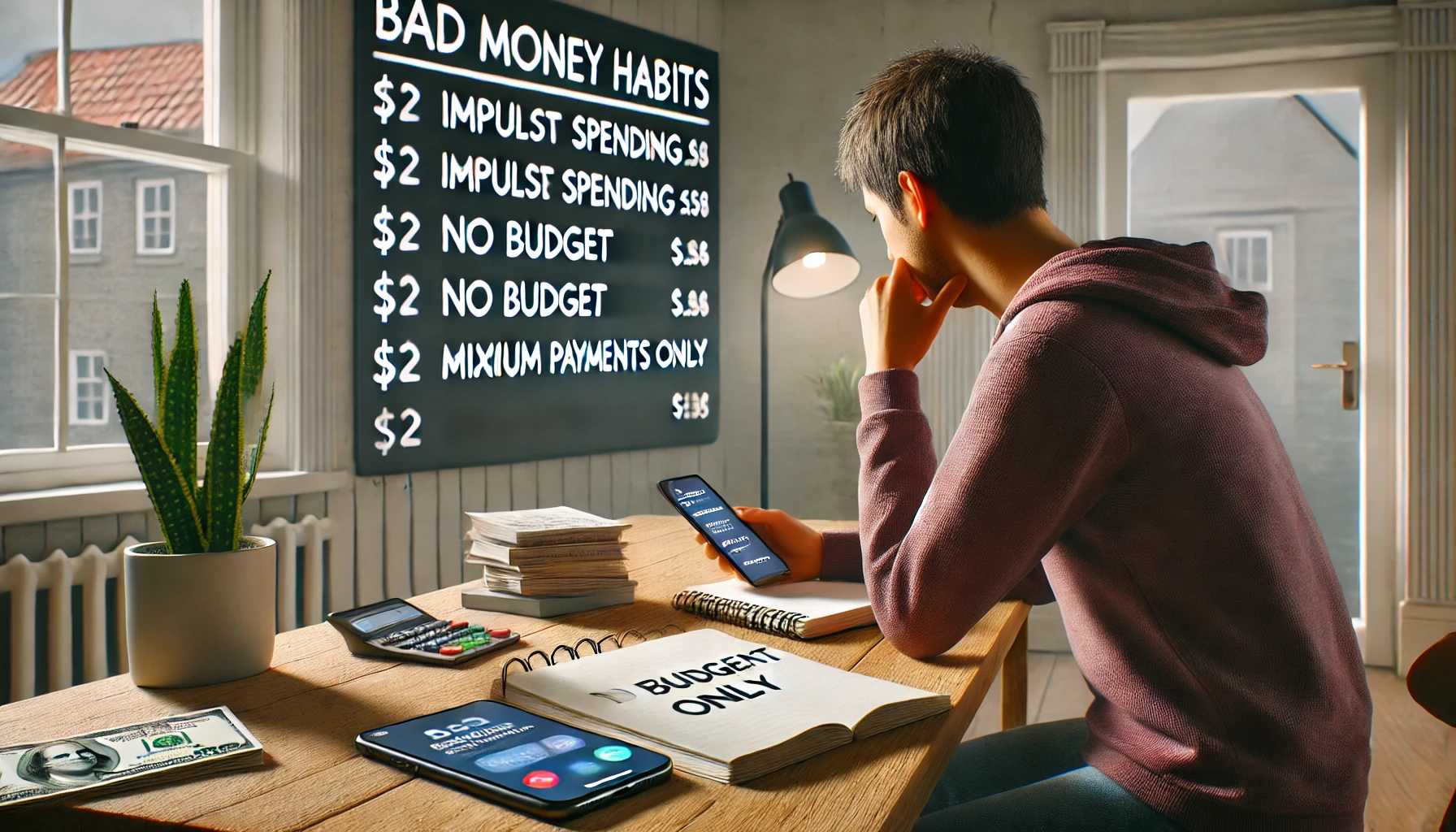You work hard. You try to save. But somehow, your money always disappears—and the end of the month always feels like a struggle. The problem might not be your income. It could be your habits.
In this article, we’ll explore the most common financial habits that silently sabotage your progress—and how to replace them with smarter, healthier routines.
1. Living Paycheck to Paycheck
This habit traps millions of people in a cycle of financial stress. Even with a decent salary, if all your income goes out every month, you’re stuck.
Why It’s Dangerous:
- No room for emergencies
- You’re always one paycheck away from panic
- You can’t build wealth without surplus
What to Do Instead:
- Track your spending
- Build a small emergency fund
- Start saving a fixed amount—even $10 per week helps
2. Not Tracking Your Spending
If you don’t know where your money is going, how can you control it?
Bad Habit:
- Swiping cards without checking balances
- Guessing how much you spend
Better Habit:
- Use apps like YNAB or Mint
- Review expenses weekly
- Categorize your spending
Clarity = control.
3. Making Only Minimum Payments on Debt
Minimum payments might keep collectors away, but they don’t move you forward.
Why It’s Harmful:
- You pay more in interest
- It takes years to pay off
- You stay stuck in the debt cycle
What to Do Instead:
- Pay more than the minimum—even $20 helps
- Focus on one debt at a time (Snowball or Avalanche method)
- Avoid new debt while paying off old ones
4. Ignoring Small Purchases
A $3 coffee doesn’t seem like much—until it happens five times a week.
Common Mistake:
- Underestimating “little” expenses
- Not tracking things under $10
Fix It:
- Set a weekly limit for “fun money”
- Track everything for one week
- Use cash for better awareness
Small leaks sink big ships.
5. Not Having Financial Goals
Without goals, your money has no direction. You just spend, react, and hope for the best.
Poor Habit:
- No savings target
- No retirement plan
- No timeline
Better Approach:
- Set SMART goals (Specific, Measurable, Achievable, Realistic, Time-bound)
- Examples: “Save $1,000 in 3 months” or “Pay off credit card by December”
- Track your progress monthly
Goals = motivation + momentum.
6. Impulse Spending
It feels good in the moment, but it hurts later. Impulse buying is emotional, not logical.
Triggers:
- Sales and discounts (“limited time only!”)
- Stress shopping
- Social media ads
Solutions:
- Wait 24 hours before non-essential purchases
- Unsubscribe from promo emails
- Make a “wish list” instead of a “buy now” list
Discipline saves money.
7. Not Budgeting
No budget = no plan. And no plan = no progress.
Myth:
“I don’t need a budget. I’m not broke.”
Truth:
- Budgeting helps everyone, not just people with money problems
- It shows you what’s possible
- It helps reduce financial anxiety
Start simple. Track income, expenses, and goals.
8. Keeping Up With Others
Trying to match the lifestyle of friends, influencers, or coworkers is one of the fastest ways to stay broke.
Warning Signs:
- Buying things to impress others
- Feeling pressure to upgrade phone/car/clothes
- Comparing your life on social media
Financial Freedom Tip:
“Live below your means, not beyond your image.”
You don’t know anyone else’s real financial situation—focus on yours.
9. Not Saving for Emergencies
Emergencies are guaranteed. If you’re not prepared, they’ll send you into debt or panic.
Wrong Habit:
- Relying on credit cards when trouble hits
- Thinking “I’ll save later”
Better Habit:
- Save $500 to start
- Automate small weekly savings
- Treat your emergency fund like a bill
Peace of mind > panic mode.
10. Waiting for “More Money” to Start
Many people think, “I’ll start saving or investing once I earn more.” But that day never comes.
Truth:
- If you don’t manage $500 well, you won’t manage $5,000 better
- Good habits matter more than income
- Start small—start now
Even $1 saved is better than $0.
Final Thoughts: Your Habits Shape Your Future
Being broke isn’t just about income—it’s about behavior. By identifying and changing these habits, you create space for growth, peace, and financial freedom.
Start by changing just one of these habits this week. Then another. Over time, your bank account—and your life—will reflect the difference.
